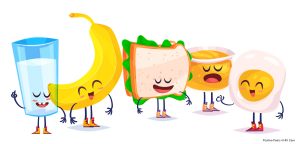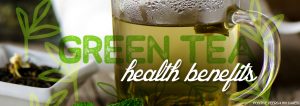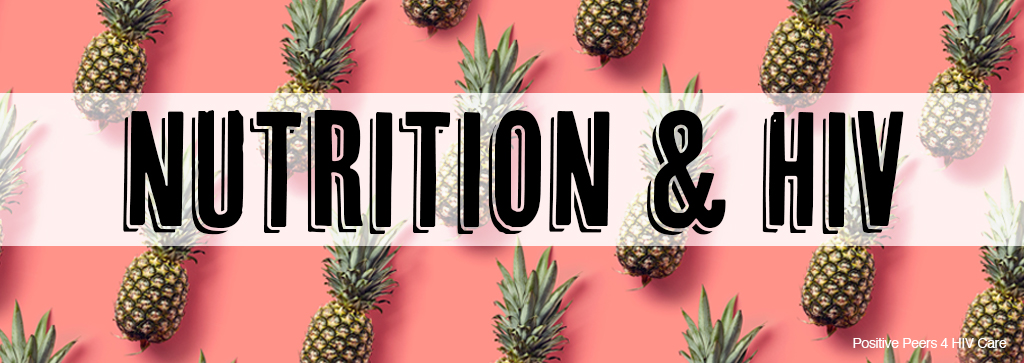
By: Ann K. Avery, MD, Infectious Disease Physician at MetroHealth Medical Center
You’ve heard it before: taking care of yourself goes a long way when it comes to living healthy with HIV. Being healthy involves more than getting enough sleep, remembering to take your meds, and exercising. You have to eat healthy too!
Having a healthy diet makes it easier to live a healthy life. Eating right will help you maintain a healthy weight for your height and body type. It can also help make your immune system stronger and make it easier for your body to absorb the medications you take each day for HIV. Pretty cool, huh?
Once you get the basics down, making healthy eating choices will become second nature to you. The important thing to remember is you need to eat a diet high in veggies, fruits, whole grains, and legumes. You also need good fats like olive oil, walnuts or almonds and lean proteins in your diet. When you’re picking proteins, choose ones that are lean and low-fat, such as fish or skinless baked or grilled chicken or turkey.
The next one most people already know, but it isn’t bad to have a reminder. Try to keep the soft drinks and other sweetened beverages such as ice tea, fruit punch or fruit juices, sweets, and food with added sugar to a minimum. This will help a lot and keep you feeling trim and sexy!
Now we’re going to get into some healthy recipes you can make at home!
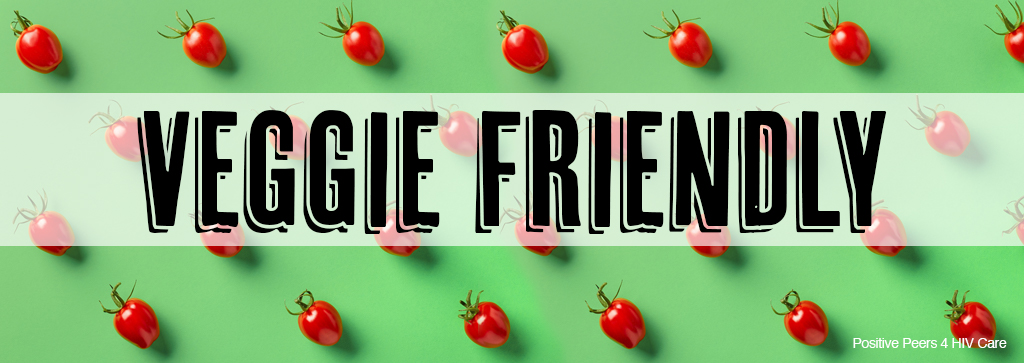
Veggie Friendly
Your family wasn’t wrong when they told you that if you eat your veggies, you’ll grow up big and strong. After all, vegetables pack a lot of vitamins, minerals, and fiber.
An excellent veggie recipe to try is Parmesan Garlic-Herb Zoodles by iowa girl eats. This low-carb and gluten-free recipe is really easy to make, and you only need a few ingredients.
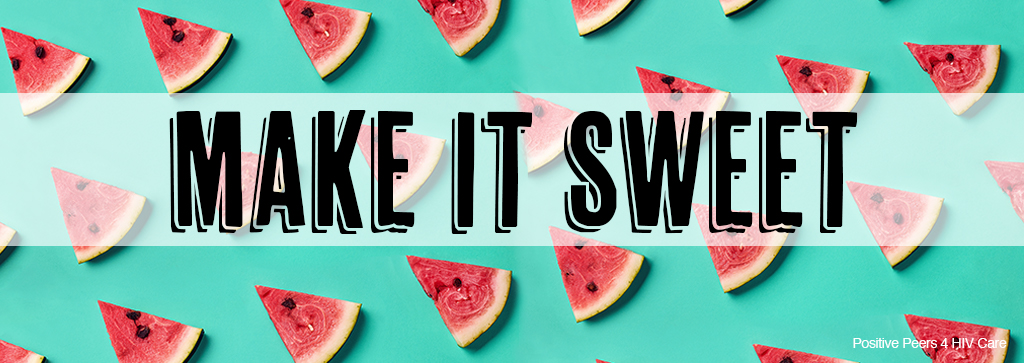
Make it sweet with fruit
Fruits, like vegetables, are full of vitamins, minerals, and antioxidants that help boost your immune system. Everyone should limit the salt and sugar they consume, but people living with HIV need to be especially careful.
Being HIV positive increases your risk of heart disease, and since overeating salt or sugar over time harms your heart, you won’t be doing yourself any favors if you overeat junk food.
The good news is, because most fruits are sweet, they can satisfy your sweet tooth and are way healthier for you! A good fruit recipe to try is Citrusy Fruit Kabobs from Taste of Home. The nice thing about this recipe is it’s super easy, and you can use many different fruits.
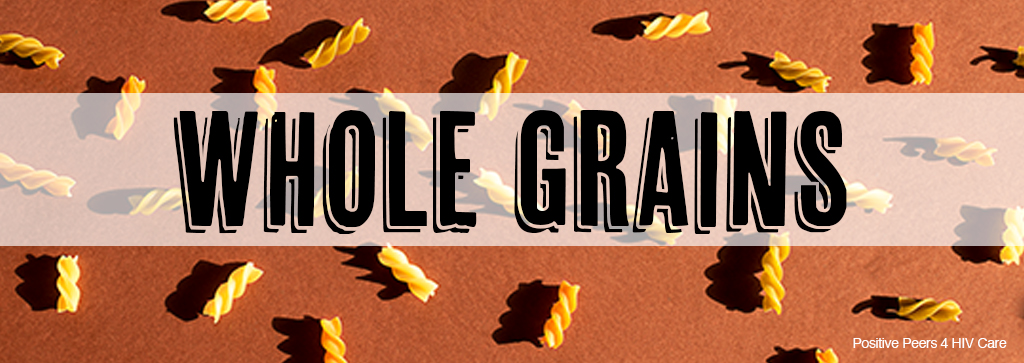
Whole grains are the way to go
Carbohydrates are what gives your body energy. Carbs are found in many different foods, including ones that aren’t good for you like potato chips and pizza. Try to stay away from those and stick with carbs that are loaded in fiber and rich in nutrients. Great choices are oatmeal, brown rice, whole grain pasta or bread, and whole grain unsweetened cereals. Whole grains are the way to go!
Eating Well’s article, How to Cook 7 Whole Grains and 10 Simple Ways to Jazz Them Up, talks about how to cook different whole grains like brown rice, quinoa, and polenta. Later in the article, it even talks about simple ways you can make whole grains tastier.
Come join our private, stigma-free, supportive community.
Health management tools with medication & appointment reminders.
Social networking in a community conversation & private chats.
What’s a legume?
There’s a good chance you’ve eaten legumes before and didn’t even know it! Legumes are dried fruits grown in a pod or shell. Some legumes you’re probably familiar with are peanuts, beans, peas, and alfalfa.
Legumes are great for everyone, but if you’re vegetarian or vegan, they’re excellent to have in your diet because of the protein, minerals, and fiber found in them. The protein in beans and other legumes help keep your muscles strong. Another thing to keep in mind is that, unlike other foods, legumes won’t inhibit fat loss or make insulin levels spike in people with diabetes.
A lot of legumes, including beans, are cheap to buy. They make a great food staple if you live on a budget. Make sure to check out The Simple Dollar’s Nine Easy Bean Recipes to Save Time and Money for ideas.
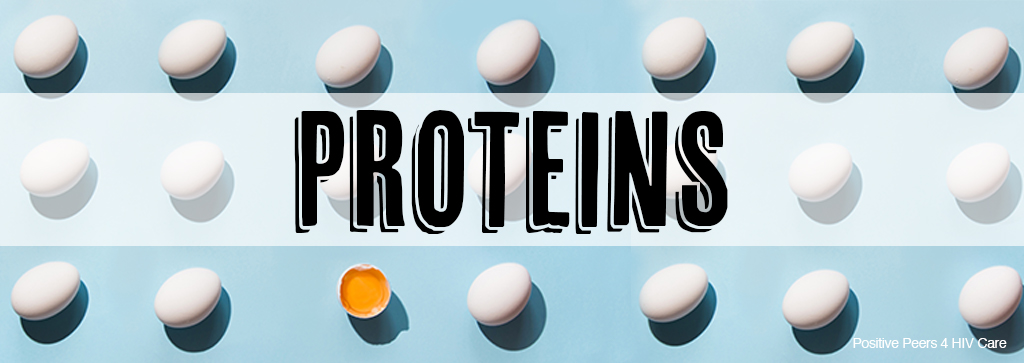
Protein packs a punch
We talked about protein in the section about legumes, but we’ll go into a little more here. People living with HIV sometimes lose muscle mass. That means consuming enough protein each day is essential to help stop muscle loss from happening. The palm of your hand is roughly one 3-4 ounce serving of protein. You need 2-3 servings of these each day. You can get these from nuts, beans, chicken, fish, eggs or meat.
Some good sources of healthy protein include lean meats like chicken and fish. Eggs are another protein to incorporate into your diet. Here are some fish, chicken, and egg recipes to try out:
- The Best Healthy Fish Recipes by Fitness Magazine
- 11 All-Time Best Healthy, Easy Chicken Recipes by Two Healthy Kitchens
- 15 Healthy Egg Recipes by Real Simple
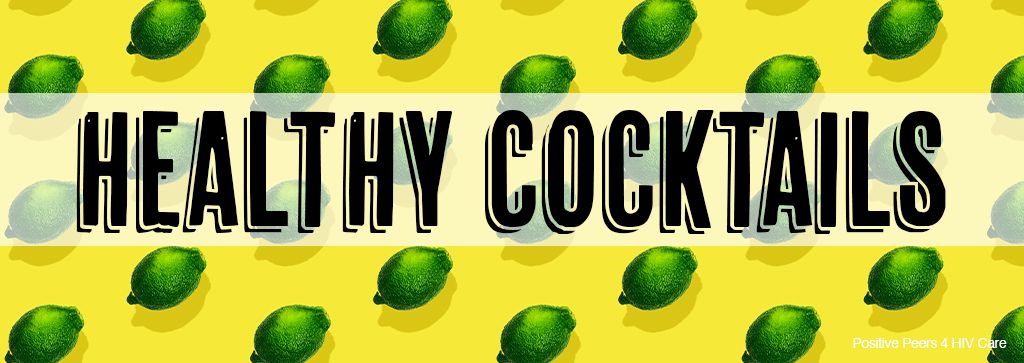
Drinks to chillax
Sometimes after a long week, it’s nice to relax with friends and have a drink or two (but not more than 1 or 2 drinks per day is recommended). But alcohol is known for being high in calories — especially cocktails. Thankfully, there are ways to drink a tasty cocktail still and make it a little healthier.
Here are some drinks to check out from Self’s 14 Low-Calorie Alcoholic Drinks Registered Dietitians Love
- Vodka seltzer with lemon or lime
- Bloody Mary, extra spicy
- A glass of pinot noir or champagne
- Johnny Walker Black and Diet Coke
- Low-calorie version of a cosmopolitan
- Silver tequila on the rocks or with soda plus lime juice or an orange slice
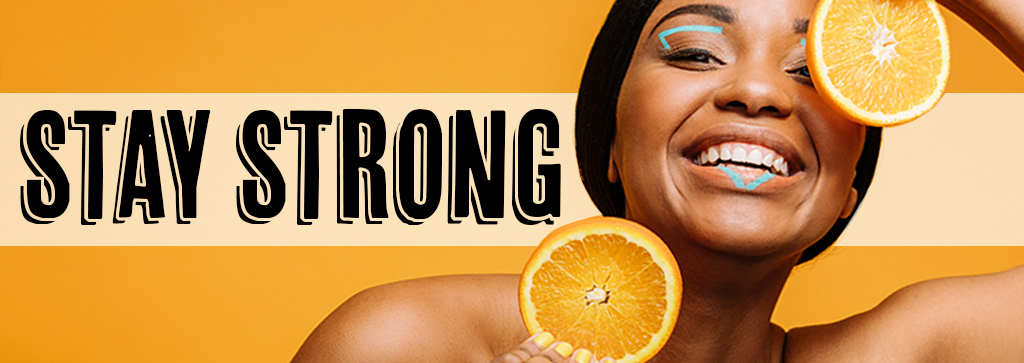
Stay strong and eat well
It’s really important for everyone to maintain a healthy diet, and especially important if you’re living with HIV. Eating right will help keep your immune system as strong as possible and make it easier for your body to fight infections while having the perk of making you look and feel sexy!
Related Blogs:

